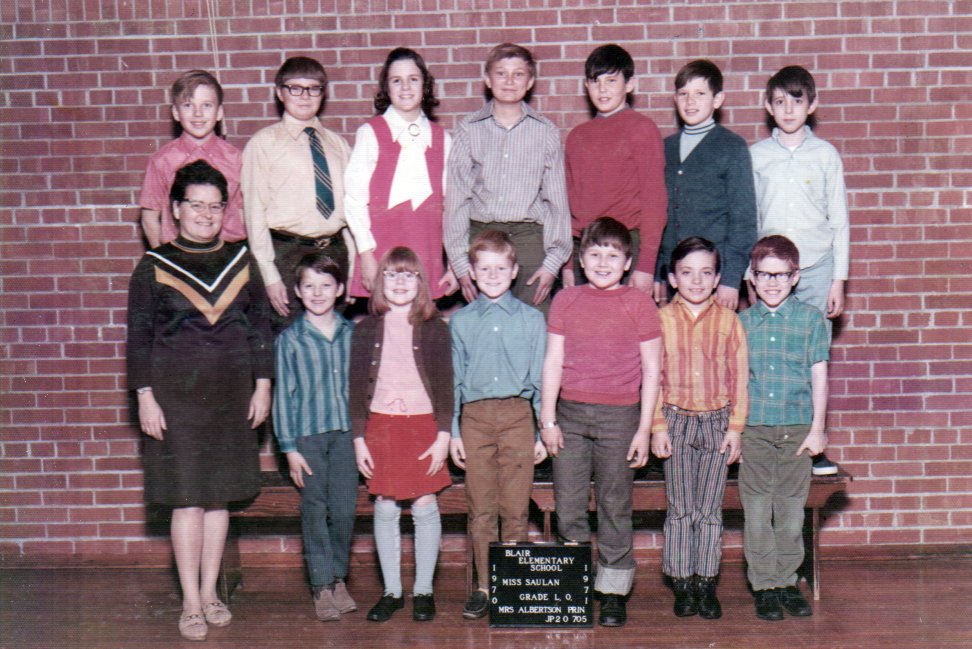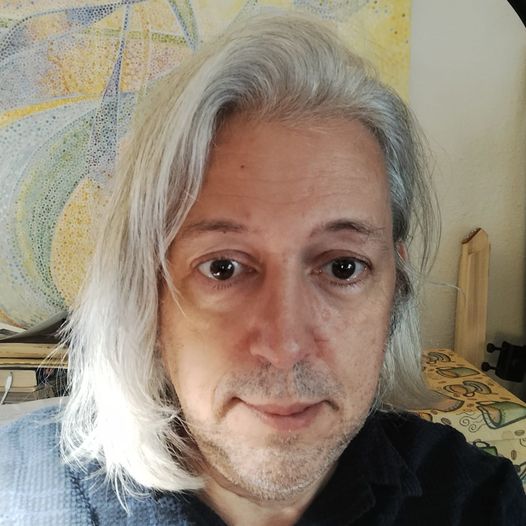My Story
I think I’m eleven or twelve in this picture.
I’m 63 now, and in all this time I have lived with something I never understood, much less revealed to the world.
Do you remember what it felt like to be nine? Do you remember the kind of things that were important to you and things that held no interest at all? I do because it never changed. Yes, my understanding of the world, the human condition, the power of emotions, and the depth of who we, as free-thinking individuals, can change the world around us has grown. But something in me never did.
I am Asexual. It’s controversial, even amongst LGBTQ society. Some people don’t even believe we are real. Some people think it’s a psychological problem, a fear of intimacy, or “You just haven’t met the right person.” It is not. We are just us.
I was married for 29 years. We had a kid together. But I was never interested in sex. My wife was, so I did anyway. It caused a lot of tension in our marriage, as you can guess. She supported me regardless, though I know it hurt her. It wasn’t what she signed up for, but she stuck with me and loved me tell the day she died. Had I understood when we met, I could have spared her much pain.It goes even deeper for me, though. I have never been drunk, high, gambled, smoked, or partaken of the allures of adulthood. I have never had the desire to. I am still the kid in that picture. Would you expect or want that for him? I would hope not.
This is not an easy thing to put out in the world, but the world is not an easy thing for me to face. When you see the amount of media geared toward adult interest in advertising, movies, and television, can you imagine what it looks like to me? Probably not. Do I expect the world to accommodate me? No, that would be ridiculous. I am one of an estimated 1-4% of the population.But what I write and sing and how I express my creativity is my view of life. I see philosophy, ethics, kindness, and understanding as the roots of my soul. I cry when I see violence, real or fictional. It causes me actual pain, so when I sing or write of it, I live it.
I am not, nor have I ever been, “normal.” As a young idealist/mediator personality type (INFP) child, I was a pacifist, but when bullied, I had great difficulty controlling frustration and rage. I lashed out and hurt anyone around me, then felt crushing remorse for it. I was stripped naked and spanked by a grade school principal on an almost weekly basis, and spent my class time just staring out the windows at the changing seasons. I would write over and over on my homework in stark black letters that tore through the paper. Soon I feared my own emotions, keeping them locked in the image of the old nailed-shut door in my father’s shop. I spent much of my childhood with imaginary friends and reacted oddly to seeing the history of my hometown around me. I seemed to be taking in every sense around me all the time. The visions I experienced were common, and I spend time in calm cemeteries talking to the headstones, asking questions about who they were and what their lives were like. My mother says I would cry when passing collapsing and derelict old buildings. Other kids found me weird and had little tolerance for me.
By age 11, I could no longer handle being in regular school. I had too many problems and had withdrawn into my own world for safety. My mother pushed and worked to get me in a new program with only thirteen spaces. In the early 70s, we were referred to as the Learning Opportunities (read that as “Disabilities”) class. We came from all over town and were like a one-room school within a regular school. We were diverse and from all age groups, and there were no rows of desks. We were scattered about the room in little cubicles but often worked splayed out on the carpet together, the bigger kids helping the little ones, and sometimes, vice versa. This was the idea of Miss Irene Saulan, and she met a lot of resistance and scorn from other educators back then.
This class saved my life. It gave me a few years to breathe and allowed me to discover I was not the stupid unlikable kid that everyone who picked on me said. She read us Charlie and the Chocolate Factory and talked to us in word games and riddles. (May I go to the restroom? Why? Are you tired?) She got us all a reel of audiotape so we could record ourselves to hear what we sounded like to others. She asked us questions about ourselves and had us ask questions to each other. We learned empathy, understanding, kindness, and forgiveness for others and, mostly, ourselves. I was a mess when I got there, but after two years in her group, I did get better, and I did learn about myself.

Nonetheless, look at this picture. I’m the only one not smiling. I’m the one with the fear in his eyes. It took a long time to get past that point.
We went to the U.K. to play, did Ren Fairs, and planned a future in a fictional British town called Withe & Stone, Jan’s invention, which she populated with characters from her mind. We planned to feature them on a video blog. Then Jan had a stroke. Less than a year later, she didn’t wake up one morning.
We had a lovely evening watching Escape to the Country on YouTube and she went to bed feeling happy and a bit silly. She spoke recently of how she would love to go to sleep and just wake up in her perfect little village where everyone’s life revolved around art, creativity, music and friendship. She told me that if she got there first to meet her in the pub. Sometime in the early hours of a Saturday morning, she made that journey. I know that someday I will walk into that pub myself to see her sitting by the crackling fire with a big smile and two pints of cider, one for each of us.
After she was gone, I found a whole folder of her songs she left unrecorded, that I alone knew the melodies to. I gave myself the goal of recording all the CD projects we had laid out together in one year. After meeting that goal, then took the tales I wrote for her, and the one Jan started and all her characters, along with her art, and wove them together in a collection of interconnected short stories about what we all deal with in life. It was a story without villains or treachery but still with its share of tragedy amongst the innocence. As I wound my way through what was to be an open-ended slice-of-life concept, took on a surprising arc all about the nature of reality, and came to a conclusion that left her townsfolk with futures of their own. It became our only novel together, a cap on our thirty-year partnership.
But finding a conclusion meant I was left to decide where my life went from there. For the first time in 30 years, I was alone with my own future. After putting on the normal show for so long, long enough to fool even myself, I had to admit that I’ve always been at right angles to the world. The walls and masks I constructed around me had become a prison I was now alone in, facing eternal solitary confinement. I was in the darkest pit of my soul.
It was in that quiet of my heart that I heard the voice of my child self speak up. Come back, he cried, do not forget me. Do not forget the friends we shared across time. So I listened, and he took me back to where I started so I could discover who I was all over again, that highly sensitive boy that had always been there within me, the one with an imaginary friend that may have been more real than not. The one who whispered comfort to my child self in lonely times and, in turn, that same sad soul I was now. “Write our story,” they both said, so I did, The Childgrove, and it shocked me.This was my imaginary best friend. How could this rip me apart like this? I was an emotional mess. I cried as I typed, and felt every memory as we went. It was my friend’s last gift to me. He led me through the most cathartic experience of my life, and neatly explained everything in my childhood that I never had answers to before. He had come back to save me from the dark hole I was in. He had shattered the walls of my confinement and gave me the strength to stand up to the world as the true self that I was born to be.
I was done hiding. I was done with fear.It also made me realize there was one more story yet to tell, in a whole different way.
So that brings me back now, a changed, shaken, and hopefully wiser soul, the one who never really wanted anything other than peace and love and to tell his story. So after all the music, adventures, and all the voices whispering in my ear, it’s seemed like the time to pull it all together for one great show. Something new, and something both joyous and deep.
WELCOME TO MY THEATER.
It stands on the edge of Limbo, where we all wait until we dare to face ourselves, where we can pick up the broken pieces and join each other to see what the world can be.
Shadows live here, but they are the shadows who point to the light.
Welcome to Astrolabe.
Welcome to the Tent of Stars.
“Everyone should be free to follow their dreams and be who they want to be. You said that just a few hours ago. Well, this is the only dream I have. It’s time for you to grow up and open your eyes. Everyone in this show is hiding behind some character we put on that stage, and you’re no different. Every one of us is broken. You say you want to trust somebody to tell you the truth. Well, this is it, Lincoln. No more illusions for you. I am the truth. All I want is for you to see me, to believe in me!”
ALEX.
